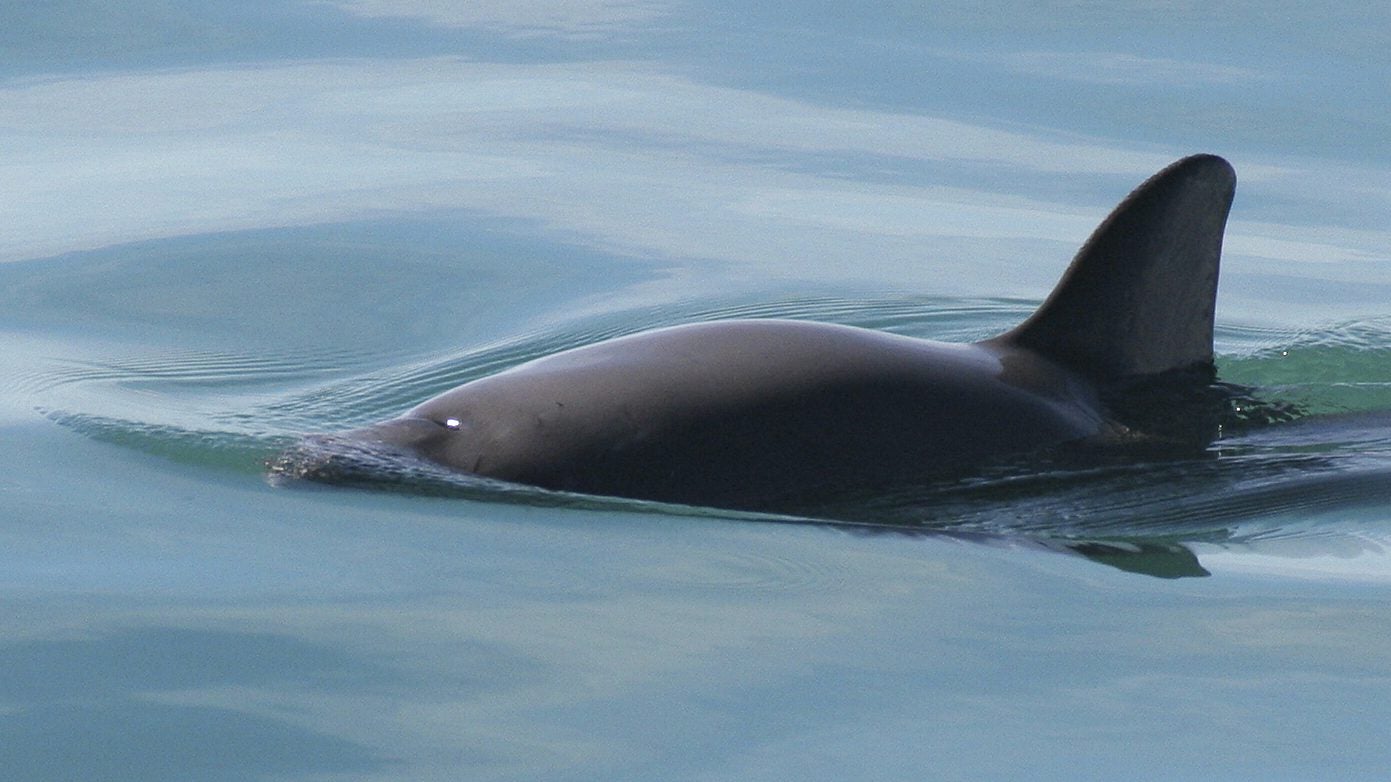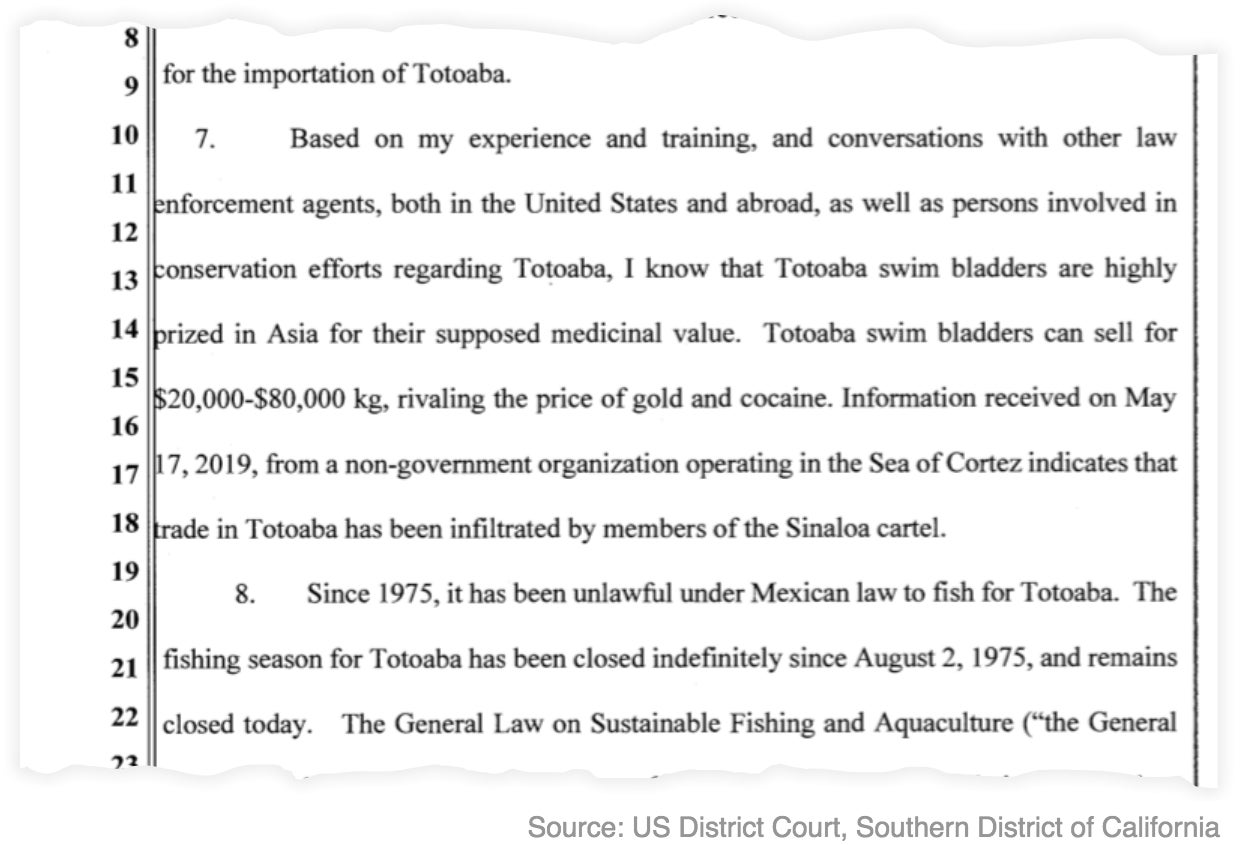“Tourists” caught in US with endangered fish bladders worth $3.7 million
When an Orange County, California deputy sheriff pulled over a maroon Toyota van last month for speeding, something seemed amiss.


When an Orange County, California deputy sheriff pulled over a maroon Toyota van last month for speeding, something seemed amiss.
The driver’s hands shook noticeably when he handed over his driver’s license. The passenger, instead of the driver, responded to the deputy’s questions. The two men, Chinese nationals named Yikang Liang and Haoyu Huang, said they had come to the United States to shop for clothes. The deputy found this all rather suspect, according to a search warrant application filed in California federal court.
The men said they had lived in Mexico for years, but neither could answer questions in basic Spanish. And the three large boxes in the back of the van seemed inconsistent with the story they were telling. Liang and Huang had entered the United States from Mexico in separate vehicles two days earlier, 17 minutes apart. The deputy began to suspect they might be drug smugglers. He called for backup, then had his police dog sniff around.
As it turned out, they were smugglers of a different kind.
In those big boxes, the deputies found the dried swim bladders of 132 totoaba—a severely endangered fish—weighing roughly 104 pounds. According to the warrant application, details of which are being reported for the first time by Quartz, totoaba swim bladders sell for $20,000 to $80,000 per kilogram, “rivaling the price of gold and cocaine.”
The contraband these two had in the back of their van, the warrant application notes, was worth in total between $940,000 and $3.76 million.
Swim bladders are found in some bony fishes. They fill with gas to help the fish maintain buoyancy. Unfortunately for the totoaba, the Chinese believe their swim bladders have revitalizing properties. Some even stockpile them as investments. It’s a business so lucrative, authorities believe members of the Sinaloa cartel have entered the totoaba market.

The driver said he didn’t know how the boxes wound up in their van. When deputies showed him the dried swim bladders, he said he didn’t know what they were. But the two men consented to a cursory review of their cell phones by a US Fish and Wildlife Service agent, who found video of the two men “engaged in fishing with nets, which appeared to be similar to the type of nets used to fish for Totoaba.”
No criminal charges have yet been filed against the two men. A judge signed off on the search warrant on June 4, which will give investigators the chance to more closely examine the men’s phones. This could shed light on any larger operation that might exist, including names of suppliers and buyers.
The totoaba bladder seizure comes less than a month after a court sentenced an ex-US Border Patrol agent to prison for smuggling, among other things, $250,000 worth of protected Mexican sea cucumbers into the United States. Sea cucumbers are a delicacy in China.
Making a bad problem worse
Totoaba exist in only one place on Earth, Mexico’s Upper Gulf of California. Fishing the species was banned by the Mexican government in 1975.
The bulk of totoaba swim bladders enter the United States through Mexico before making their way to China, according to the World Wide Fund for Nature (WWF). At the end of last year, Chinese authorities confiscated nearly a half-ton of totoaba swim bladders—worth an estimated $26 million—in a single raid.
A 2018 investigation by Earth League International, an environmental watchdog group, found that the trade is led “by three Mexican criminals who fund the Mexican poachers, and then sell the swim bladders to a group of well-connected Chinese traders and businessmen residing in Mexico.”
China’s appetite for totoaba swim bladders, also called maw, is the principal cause of the near-extinction of the vaquita, the world’s smallest porpoise. When fishermen catch totoaba using gillnets, which were banned by Mexico in 2017, the vaquita, which share the totoaba’s habitat, often get taken as by-catch.
Cynthia Smith, executive director of the National Marine Mammal Foundation, told Quartz that the vaquita is the world’s most endangered marine mammal. Today, researchers believe fewer than 30 vaquita remain in the world. Some estimate the number as low as 12.
“If we do not stop the illegal trade in totoaba right now and eliminate that as a threat to the vaquita, they will go extinct,” Smith said. “It is the one most important things we can do to prevent their extinction.”
Read the full text of the search warrant application here: